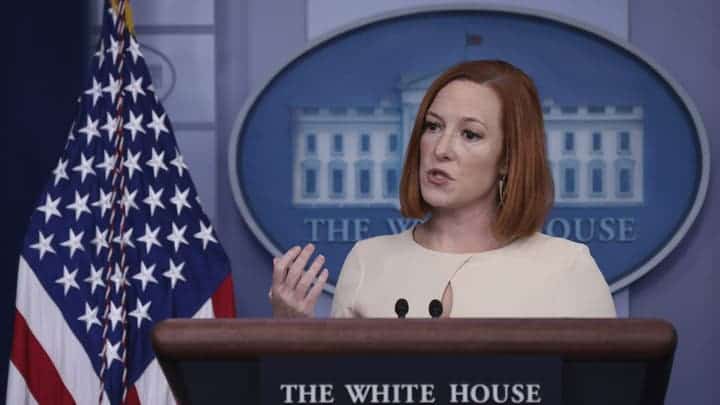
The Biden administration is already in damage control mode ahead of the newest inflation data out this week that is expected to bring another jaw-dropping figure as the price of everyday consumer goods soared higher.
White House press secretary Jen Psaki told reporters Wednesday that administration officials expect a “high year-over-year inflation reading” when the Consumer Price Index report is published Thursday morning. The White House has said that individuals should focus on the month-over-month increase, rather than the annual jump, considering “what we’ve seen over the last year.”
“So above 7%, as I think some are predicting, would not be a surprise, even though we don’t know what the data is going to be,” Psaki said. “But looking at that reading of it as we prepare for tomorrow is still consistent with the path and our view.”
The Labor Department is releasing the highly anticipated consumer price index on Thursday morning, providing a fresh look at just how hot inflation ran in January.
Economists expect the gauge, which measures goods ranging from gasoline and health care to groceries and rents, to show that prices surged 7.3% in January from the year-ago period, toppling the previous month’s 39-year high of 7%.
It would be the fastest increase in consumer prices since February 1982, when inflation hit 7.6%.
Rising inflation is eating away at strong gains and wages and salaries that American workers have seen in recent months. That’s bad news for President Biden, who has seen his approval rating plunge as consumer prices rose. The White House has blamed the price spike on supply-chain bottlenecks and other pandemic-induced disruptions in the economy, while Republicans have pinned it on the president’s massive spending agenda.
The latest data will also have implications for the Federal Reserve ahead of its March meeting. Chairman Jerome Powell has signaled that policymakers will raise interest rates from rock-bottom levels as early as next month.
The only question now is whether it will be a quarter-basis point hike or larger. A hotter-than-expected reading on Thursday morning could pressure the Fed to consider its first half percentage-point increase since 2000.
Psaki said the president supports any decisions by the Fed to begin raising rates, even though doing so risks slowing the economy. Hiking interest rates tends to create higher rates on consumers and business loans, which slows the economy by forcing employers to cut back on spending.
“The president has said he welcomes and supports [The Fed’s] efforts to take steps with their plans in terms of our confidence,” Psaki said. “We, again, rely on what their projections are that inflation will come down, that it will moderate, and we are also continuing to take steps to continue to grow the economy and continue to address the needs that the American people have in the economy.”